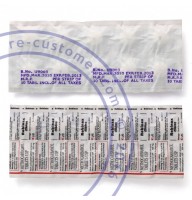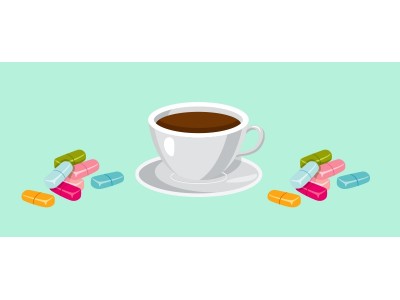Understanding the Interaction Between Diphenhydramine, Methocarbamol, and Caffeine
When managing medications and their interactions, it's crucial to understand how different substances affect each other. Diphenhydramine and methocarbamol interaction with caffeine is a topic of interest for many who are trying to balance their medication regimen. Both diphenhydramine and methocarbamol have distinct effects on the body, and adding caffeine to the mix could potentially alter their impact.
Mixing Diphenhydramine with Caffeine: What You Need to Know
Diphenhydramine, an antihistamine commonly used for allergies and sleep issues, can have sedative effects. Combining it with caffeine, a stimulant, could potentially counteract its drowsiness effects. However, this interaction is not straightforward. Caffeine might not completely neutralize diphenhydramine’s effects but can create a complex balance that affects overall effectiveness and side effects.
Effects of Combining Methocarbamol and Caffeine
Methocarbamol, a muscle relaxant, works by depressing the central nervous system to reduce muscle spasms. Combining methocarbamol and caffeine introduces another layer of complexity. Caffeine could potentially reduce the muscle-relaxing effects of methocarbamol by stimulating the nervous system, leading to unpredictable outcomes in muscle relaxation and overall muscle control.
Crushed Diphenhydramine and Methocarbamol Tablets with Caffeine: Risks and Considerations
Taking crushed diphenhydramine and methocarbamol tablets with caffeine poses several risks. Crushing tablets can alter their release and effectiveness. The addition of caffeine further complicates this mix, potentially affecting how well the medications work and increasing the risk of side effects.
Caffeine Impact on Diphenhydramine and Methocarbamol
The caffeine impact on diphenhydramine and methocarbamol varies based on individual responses. While caffeine may provide temporary alertness, it might not completely reverse the drowsiness or muscle relaxation effects. This interaction could lead to a less predictable response to both medications.
Anticholinergic Effects and Safety Concerns
Both diphenhydramine and methocarbamol exhibit anticholinergic effects, which can influence the nervous system and muscle function. Understanding the anticholinergic effects of diphenhydramine and methocarbamol is important when considering interactions with other substances like caffeine. This interaction could potentially amplify or diminish these effects, leading to safety concerns.
Methocarbamol and Caffeine Safety
Assessing methocarbamol and caffeine safety is crucial for anyone considering combining these substances. The stimulant effect of caffeine may interfere with the central nervous system depressant effects of methocarbamol, which could result in increased side effects or reduced therapeutic effectiveness.
Diphenhydramine and Methocarbamol Interaction on the Nervous System
The diphenhydramine and methocarbamol interaction on the nervous system is a significant consideration. Both substances affect the central nervous system, and adding caffeine to the mix might result in unpredictable effects on mood, muscle control, and overall nervous system function.
Caffeine’s Effect on Muscle Relaxants
Understanding caffeine’s effect on muscle relaxants is important for safe medication management. Caffeine might counteract the muscle-relaxing properties of methocarbamol, potentially diminishing its effectiveness and leading to discomfort or inadequate muscle relief.
Mixing Muscle Relaxants with Caffeine Effects
Overall, mixing muscle relaxants with caffeine effects can be unpredictable. The stimulant nature of caffeine can interfere with the intended effects of muscle relaxants, leading to possible complications in treatment outcomes and side effects. Careful consideration and consultation with a healthcare provider are advised when combining these substances.

